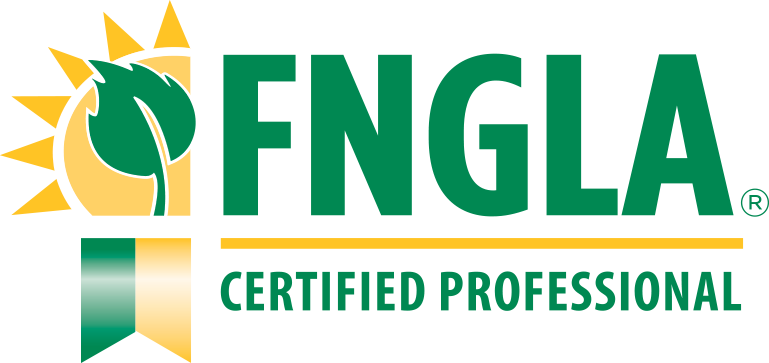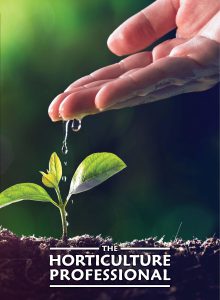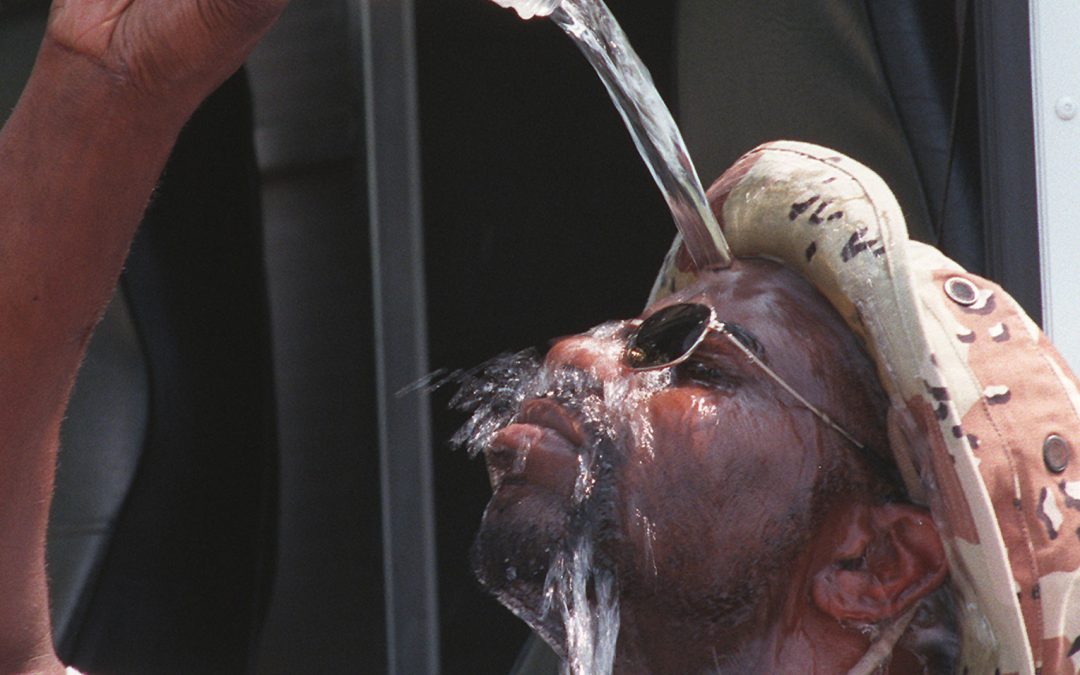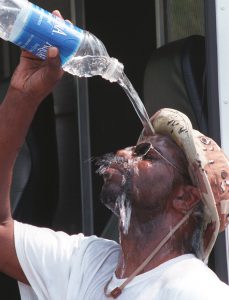
by Sheila Dunning | Dec 3, 2021
 No previous experience or accreditation it required to be a landscaper in the state of Florida. So when homeowners are searching for service providers, it is important that they question potential companies about their skills. One good measure is completion of voluntary certifications such as the Florida Nursery, Growers and Landscape Association (FNGLA) Certified Horticulture Professional (FCHP). The FCHP program has been the industry’s standard for measuring horticulture and landscape knowledge since 1984. The training is also useful for property managers, homeowner associations, retail garden center employees, or anyone that wants to know more about Florida’s plants and their care.
No previous experience or accreditation it required to be a landscaper in the state of Florida. So when homeowners are searching for service providers, it is important that they question potential companies about their skills. One good measure is completion of voluntary certifications such as the Florida Nursery, Growers and Landscape Association (FNGLA) Certified Horticulture Professional (FCHP). The FCHP program has been the industry’s standard for measuring horticulture and landscape knowledge since 1984. The training is also useful for property managers, homeowner associations, retail garden center employees, or anyone that wants to know more about Florida’s plants and their care.
Plants are complex and variable living things that range from microscopic to the largest of living organisms. With steady population growth in the state of Florida, environmental damage risks created by the use of improper products and practices has continually risen. State and federal natural resource protection agencies have restricted certain horticultural practices including fertilizer and pesticide application. It takes scientific knowledge to properly maintain lawns and landscapes, not just a “green thumb” in order to keep plants healthy while reducing contamination to the soil, air and water that we all need.
The Florida Certified Horticulture Professional training covers 16 areas, including identification, fertilization, irrigation, pest management, safety and business practices. Lecture and hands-on activities are utilized at each session. The 60-hour course will enhance anyone’s knowledge and will provide the basis for professionals to deliver a skilled service to clientele. The course is available in-person or virtually via Zoom.
If you are a green industry worker or a concerned citizen interested in attending a FCHP preparatory course, there is an opportunity coming up in Crestview. Beginning Thursday, January 6, 2022 and continuing for 8 weeks to February 24, 2022, the Okaloosa County Extension office will be providing training for $185, which included the newest hard copy manual and plant identification book. Contact Sheila Dunning, 850-689-5850, sdunning@ufl.edu for more information.
For more details and to register go to: https://www.eventbrite.com/e/florida-certified-horticulture-professional-fchp-training-tickets-215748017127

by Julie McConnell | Apr 2, 2020
Following the issuance of the Governor’s Executive Order 20-91 we have had a lot of questions from the Green Industry concerned about their status as essential employees. As noted in the excerpt below from the State of Florida Office of the Governor Executive Order Number 20-91 (Essential Services and Activities During COVID-19 Emergency) landscapers are included under the Public Works and Infrastructure Support Services Category.
PUBLIC WORKS AND INFRASTRUCTURE SUPPORT SERVICES
-
Workers who support the operation, inspection, and maintenance of essential public works facilities and operations, including bridges, water and sewer main breaks, fleet maintenance personnel, construction of critical or strategic infrastructure, traffic signal maintenance, emergency location services for buried utilities, maintenance of digital systems infrastructure supporting public works operations, and other emergent issues.
-
Workers such as plumbers, electricians, exterminators, builders, contractors, HVAC Technicians, landscapers, and other service providers who provide services that are necessary to maintaining the safety, sanitation, and essential operation of residences, businesses and buildings such as hospitals, senior living facilities, any temporary construction required to support COVID-19 response.
-
Workers who support, such as road and line clearing, to ensure the availability of and access to needed facilities, transportation, energy and communications.
-
Support to ensure the effective removal, storage, and disposal of residential and commercial solid waste and hazardous waste, including landfill operations.
-
Workers who support the operation, inspection, and maintenance of essential dams, locks and levees.
-
Workers who support the inspection and maintenance of aids to navigation, and other government provided services that ensure continued maritime commerce.
Florida Department of Agriculture and Consumer Services (FDACS) recommends that all essential employees carry a letter from their employer that describes their role as an essential employee.The Governor’s Office has provided a template that can be found at the following link. Download and modify to fit your business role. http://blogs.ifas.ufl.edu/nfrecsv/files/2020/03/2020-04-01-Essential-Worker-Movement-Letter-DRAFT-2.0-2.pdf
Please be mindful that although the landscape industry can continue working, it is imperative that all citizens follow CDC recommendations to prevent the spread of COVID-19. These can be found here https://www.cdc.gov/coronavirus/2019-ncov/prevent-getting-sick/prevention.html
In addition to this resource, consider incorporating recommendations from The Urban Ag Council of Georgia where appropriate.
*Stagger start times so that each manager will only work with their team. No more than 5-person crew.
* Employees are required to keep 8-foot separation between colleagues and/or any other people. Focus on social and work distancing.
*No more than 2 people per single cab truck and 4 people per crew cab truck (exceptions are made for employees who need to use personal vehicles to accomplish this).
*Wear dust masks when in vehicle and outside.
*Trucks are to be thoroughly cleaned at the end of every day.
*Crew leaders must clock in their crew. Do not pass phone around for them to clock-in.
*Daily – every employee (office and field) is screened with questions before starting work.
- Do you currently have a fever? Or have you had a fever in the last week?
- Do you have a cough?
- Do you have shortness of breath?
- Do you have vomiting/nausea?
- Do you have diarrhea or stomach issues?
- Have you been in contact with anyone with a confirmed or suspected case of the COVID-19?
Any employee that answers yes to any question will be asked to return home and HR will be notified to receive additional instructions.
Please be safe and let us know if we can assist in any way.
Your UF/IFAS Panhandle Commercial Horticulture Team
Bay – Julie McConnell juliebmcconnell@ufl.edu
Escambia – Beth Bolles bbolles@ufl.edu
Okaloosa – Sheila Dunning sdunning@ufl.edu
Santa Rosa – Matt Lollar mlollar@ufl.edu
Walton – Evan Anderson eanderson350@ufl.edu
Washington – Matt Orwat mjorwat@ufl.edu
Calhoun – Daniel Leonard d.leonard@ufl.edu
Leon – Mark Tancig tancig00@ufl.edu

by Julie McConnell | Aug 9, 2019

Kenny Stokes, a courier for the University of Florida’s Institute of Food and Agricultural Sciences, battles summer heat the old fashioned way. Stokes, whose van has no air conditioning, cooled off after his mid-morning deliveries. With temperatures hovering around the century mark and a heat index of 108, he decided to take matters into his own hands.
Triple digit heat indexes make it more than unpleasant to work outside, it can be life threatening. Understanding how to prevent and recognize heat injury is critical for people who work outdoors in Florida.
For horticulture and agriculture professionals who also apply pesticides, recognizing heat injury can be further complicated by the similarities of symptoms to pesticide exposure.
To learn more about preventing workplace heat related illness, read the article below by UF/IFAS Extension Hillsborough County Commercial Horticulture Agent Susan Haddock.

 No previous experience or accreditation it required to be a landscaper in the state of Florida. So when homeowners are searching for service providers, it is important that they question potential companies about their skills. One good measure is completion of voluntary certifications such as the Florida Nursery, Growers and Landscape Association (FNGLA) Certified Horticulture Professional (FCHP). The FCHP program has been the industry’s standard for measuring horticulture and landscape knowledge since 1984. The training is also useful for property managers, homeowner associations, retail garden center employees, or anyone that wants to know more about Florida’s plants and their care.
No previous experience or accreditation it required to be a landscaper in the state of Florida. So when homeowners are searching for service providers, it is important that they question potential companies about their skills. One good measure is completion of voluntary certifications such as the Florida Nursery, Growers and Landscape Association (FNGLA) Certified Horticulture Professional (FCHP). The FCHP program has been the industry’s standard for measuring horticulture and landscape knowledge since 1984. The training is also useful for property managers, homeowner associations, retail garden center employees, or anyone that wants to know more about Florida’s plants and their care.


